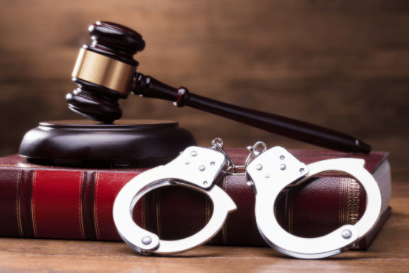Overview of Racketeering and RICO Charges
U.S. attorneys make it a priority to prosecute those they consider to be career criminals or key players in drug operations. As a result, federal prosecutors frequently file racketeering charges under RICO law in an effort to eliminate crime by striking at criminal organizations.
If you live in the Pittsburgh or Greensburg area of Pennsylvania and are being investigated for racketeering or you suspect that you are being investigated, consulting with an experienced federal attorney near you, like the experienced criminal defense attorneys Worgul, Sarna, & Ness, is essential to protecting your rights and your future. Learn more about the potential RICO penalties you could face below, or contact us today for a free and confidential case evaluation at (412) 281-2146.
What is Racketeering?
A racketeer is a person or persons who take part in running a continuous organized criminal operation or enterprise through means of conducting a number of rackets. A racket is an organized criminal activity that allows individuals to earn money illegally, typically through some form of extortion or criminal coercion. It is a scheme wherein a person creates a problem for others with the sole purpose of solving that problem as a means to financial or business gain. Racketeering has always been closely associated with the organized crime structure of the mob.
There are currently several federal laws that focus on eliminating racketeering.
- Continuing Criminal Enterprise (CCE Statute or the Kingpin Statute)
- Violent Crimes in Aid of Racketeering Activity
- Hobbs Act
- Racketeer Influence and Corrupt Organizations Act (RICO)
What is RICO Law?
Enacted in 1970, RICO laws specifically address racketeering and spell out the criminal penalties for being part of an organized crime operation. RICO charges are designed to allow the law to hold leaders of crime syndicates legally responsible for crimes they did not commit personally. For example, if the leader of a drug organization orders one of his subordinates to murder someone that leader can be prosecuted for the crime even if he was not the one to pull the trigger.
Under RICO, federal prosecutors can file racketeering charges against individuals who have committed at least two acts over a 10 year period from a group of 35 different RICO violations.
RICO and Racketeering Charges in Pennsylvania

The list of RICO violations for which an individual can be prosecuted include:
- Bribery
- Counterfeiting
- Theft
- Embezzlement, including of union funds
- Fraud, including bankruptcy or securities fraud
- Dealing in Obscene Matter
- Slavery
- Illegal Gambling
- Money Laundering and related offenses
- Murder-For-Hire
- Murder
- Kidnapping
- Extortion
- Arson
- Robbery
- Dealing in Controlled Substances
- Drug Trafficking
- Criminal Copyright Infringement
- Obstruction of Justice
- Bringing Illegal Aliens into the Country and Aiding or Assisting Them (if done for financial gain)
- Acts of Terrorism
- Other Offenses Covered Under the Federal Criminal Code (Title 18)
RICO charges have a statute of limitations of four years from the time the victim discovers the damages done to them. Someone convicted under RICO law can be sentenced to up to 20 years in prison and fined up to $25,000. Their assets will probably be seized. They can also be sued in a civil court for treble damages. It is important if you are looking at racketeering or RICO charges being leveled against you that you reach out to a qualified RICO lawyer near you. If you live in the Pittsburgh or Greensburg area don’t hesitate to contact us at Worgul, Sarna & Ness to set up your free confidential case evaluation.
Contact a Pittsburgh Racketeering Lawyer Today
If you or someone you know has been charged under RICO or another racketeering charge, your rights and future are at stake. Learn how experienced the Pennsylvania federal lawyers at Worgul, Sarna & Ness, Criminal Defense Attorneys can help you in a free legal consultation.








